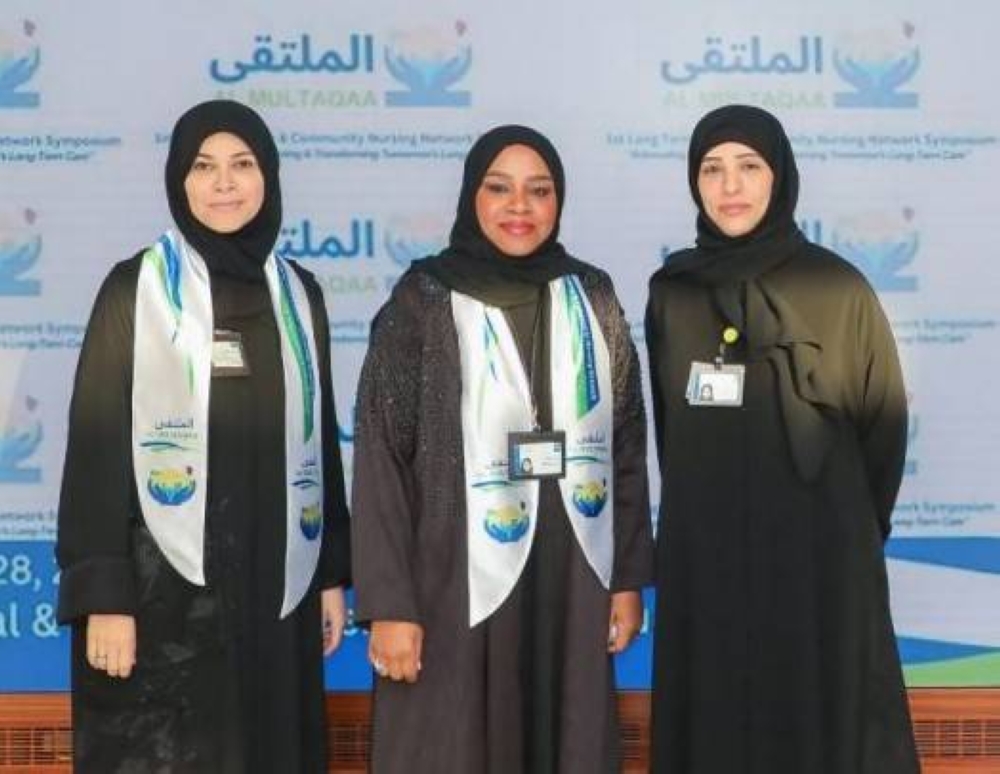The Long-Term Care and Community Nursing Network (LTCCNN) celebrated a significant milestone by hosting the first symposium recently, a statement from Hamad Medical Corporation (HMC) said.
Al-Multaqaa symposium’s theme of 'Advocating, Empowering and Transforming Tomorrow’s Long-Term Care' represented an opportunity to share knowledge about the growing need for providing effective long-term care services.
According to the World Health Organisation (WHO), “formal long-term care aims to prevent, reduce, or rehabilitate functional decline and it can be provided in different settings, such as home care, community-based care, residential care, or hospital care.”
HMC’s commitment to promoting long-term care services is evident by the expansion and enhancement of targeted services that support patients and their families who rely on long-term care support to improve their quality of life.
The LTCCNN was established several years ago with the purpose of driving system enhancements that support best practices with patients and their families in mind. The LTCCNN Steering Committee's main goal is to collaborate with similar entities, actively shaping nursing and midwifery practice, policy, and education. It plays a key role in influencing professional development and academic awards, providing guidance on partnerships, and reviewing competency frameworks. It also helps develop standardized policies based on evidence and good clinical practice, promoting collaboration across disciplines. The committee upholds professional and ethical values, ensuring good governance in all its practices.
Refa Hanish Bakhit, acting executive director of Nursing and the chairperson of LTCCNN encouraged informed discussions about long-term healthcare system needs and opportunities for service transformation and development to meet future needs. The symposium served as an optimal forum for a diverse group of speakers from various disciplines to impart valuable information and insights, contributing to overarching systemic advancements.
Dr Hanadi Khamis al-Hamad, deputy chief of Long-Term Care, Rehabilitation and Geriatrics, Rumailah Hospital and Medical Director of Rumailah Hospital and Qatar Rehabilitation Institute commenced her presentation by sharing the WHO's definition of healthy aging: "the process of developing and maintaining the functional ability that enables wellbeing in older age."
Dr Hanadi, who is also the Qatar National Health Strategy Lead for Healthy Ageing and the Head of the WHO Collaborating Center for Healthy Ageing and Dementia, highlighted the crucial need for a strategic vision and revolutionary transformation of and advocacy for long-term care and services at HMC and in the community due to the rapid rise of older adults with co-morbidities.
She explained the need to develop a sustainable and high-functioning system for long-term care. She added that teams should build on the excellent services provided in long-term care facilities such as Daam and Enaya Specialized Care Centers, Residential Care Compounds and other inpatient services but ensure a comprehensive system-wide view is maintained. For the system to perform well and really help those in need, it needs to be integrated and accessible across primary, secondary and tertiary care sectors.
Mariam al-Mutawa, acting chief nursing officer, underscored the vital significance of the nursing network and the advancement of nursing professionals within the nursing community. She stated that the network helps to promote ongoing learning, mentorship, as well as support opportunities for career development. These endeavors play a pivotal role in cultivating emerging leaders who contribute to sustainable leadership. Moreover, they foster the adoption of innovative technologies and advocate for person-centered care.
The symposium featured a debate that enabled the sharing of insights among long-term care and community nursing professionals on the important content topic of: “The wellness program implementation and its impact on preventing caregiver burnout.” Additional topics included long-term care quality indicators on advance directives, strategies on effective care transition, and recognizing high-quality and care service delivery across various levels of the health system.

Mariam Al-Mutawa, Refa Bakhit and Saadiya Alhebail.
